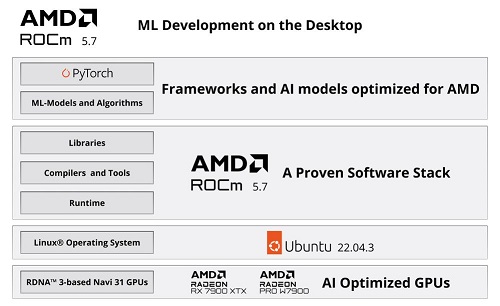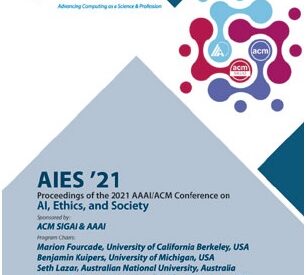AMD has recently made significant advancements in its ROCm support for RDNA GPUs, including the RX 7900 series. With these improvements, AMD empowers AI projects by providing enhanced training options through the integration of PyTorch, a popular machine learning framework.
The announcement of improved ROCm support marks a breakthrough for the AI community, as AMD continues to expand its capabilities in the field of artificial intelligence. By leveraging the power of RDNA GPUs and integrating PyTorch, AMD offers developers and researchers more robust tools to enhance their AI projects.
PyTorch, known for its flexibility and ease of use, has gained significant popularity among the AI and machine learning community. Its integration with AMD’s ROCm open software platform unlocks new training possibilities for AI projects, allowing developers to leverage the advanced computing capabilities of RDNA GPUs, including the RX 7900 series.
With the improved ROCm support, AMD enables AI developers to take full advantage of the RX 7900 GPUs, known for their exceptional performance and efficiency. The enhanced support ensures seamless compatibility between PyTorch and RDNA GPUs, enabling accelerated training and inference for AI models.
By harnessing the combined power of PyTorch and RDNA GPUs, AI projects can benefit from faster training times, improved model accuracy, and increased productivity. Researchers and developers can explore complex AI algorithms, conduct large-scale simulations, and train deep neural networks with greater efficiency and scalability.
The expanded support for ROCm and PyTorch on RDNA GPUs, such as the RX 7900 series, presents exciting opportunities for the AI community. AMD’s commitment to providing cutting-edge technologies for machine learning and AI development reinforces its position as a key player in the industry.
The improved ROCm support and integration with PyTorch enable AI practitioners to unlock the full potential of their projects. With faster training options and enhanced performance, developers can tackle more complex tasks, accelerate research, and drive innovation across various domains, including computer vision, natural language processing, and autonomous systems.
AMD’s dedication to advancing its RDNA GPUs and integrating them with leading machine learning frameworks like PyTorch showcases the company’s commitment to empowering the AI community. These developments not only enhance the capabilities of AI projects but also foster collaboration and exploration within the rapidly evolving field of artificial intelligence.
As AMD continues to push the boundaries of GPU technology and software integration, the future of AI development looks promising. With improved ROCm support on RDNA GPUs, including the RX 7900 series, AMD provides a powerful platform for AI projects, enabling researchers and developers to achieve new levels of performance and innovation.
Sources
Get ready to dive into a world of AI news, reviews, and tips at Wicked Sciences! If you’ve been searching the internet for the latest insights on artificial intelligence, look no further. We understand that staying up to date with the ever-evolving field of AI can be a challenge, but Wicked Science is here to make it easier. Our website is packed with captivating articles and informative content that will keep you informed about the latest trends, breakthroughs, and applications in the world of AI. Whether you’re a seasoned AI enthusiast or just starting your journey, Wicked Science is your go-to destination for all things AI. Discover more by visiting our website today and unlock a world of fascinating AI knowledge.





